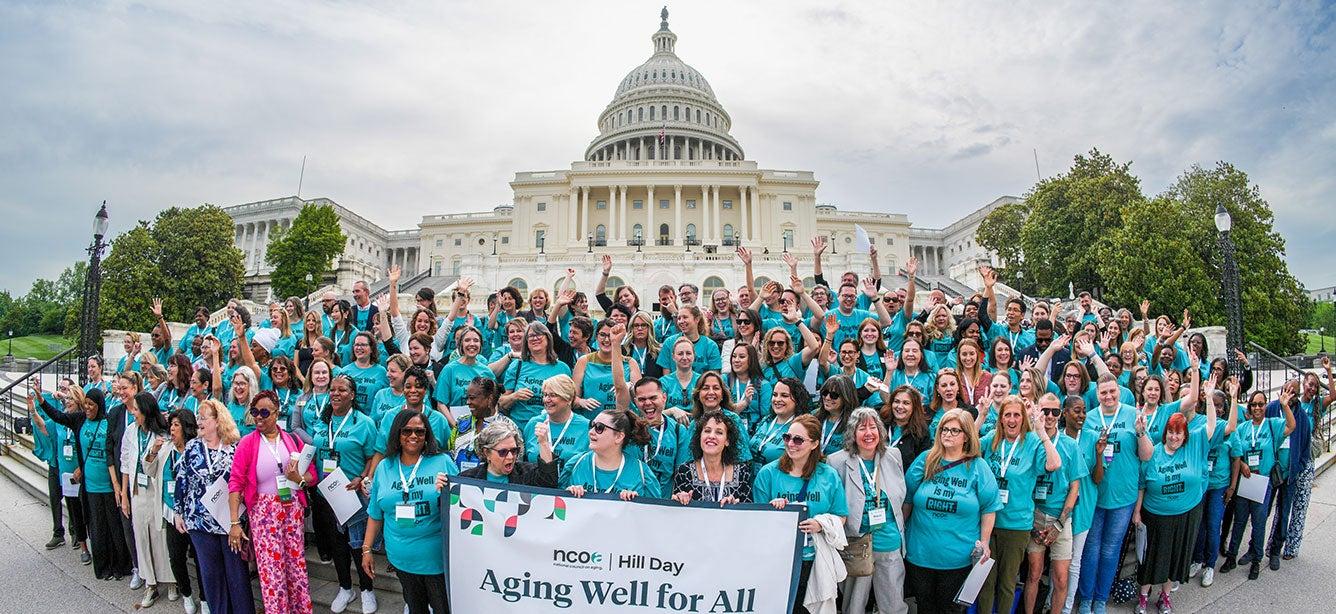
Related Topics
President Biden’s signature Build Back Better legislation stalled at the end of 2021, but advocates are hopeful that negotiations will resume in April and that a bill that includes important provisions for older adults can pass the Senate by or before June.
The version of the bill that passed the House in November included reductions in prescription drug costs, improved access to home care services, coverage for hearing aids, and new Older Americans Act investments. But Senate consideration stalled in December due to opposition from Sen. Joe Manchin (D-WV).
Senate's Build Back Better focus: Prescription drug and home care services
To maintain interest and momentum, the Senate continues to focus on prescription drug and home care services opportunities. On March 16, the Senate Finance Committee, which has jurisdiction over Medicare and Medicaid, held a hearing on the need for and proposals to lower prescription drug prices.
Although bipartisan cooperative opportunities are likely limited, both parties have bills that would cap the cost of insulin and decrease beneficiary prescription cost sharing. A Senate floor vote on capping the cost of insulin products at $35 per month could be scheduled in late April or May.
NCOA and other advocacy groups sent a letter to the committee urging that a hard cap on Medicare Part D out-of-pocket costs be included in the legislation.
Casey's historic legislation to create jobs, raise wages, and expand home and community-based services
On March 23, the Senate Special Committee on Aging held a hearing on proposed new investments in home and community-based services. Committee Chair Sen. Bob Casey (D-PA) introduced the Better Care Better Jobs Act (S. 2210), a bold investment that would help hundreds of thousands of Americans avoid going into nursing homes while obtaining the home care they strongly prefer. Casey's S.2210 legislation would also create new jobs and offering caregiving workers a long-overdue raise and stronger benefits.
“An investment in home-based care is urgently needed. It will help people get back to work. It will give families peace of mind because they know that their loved ones are cared for," said Casey in a March 23 press release.
"It will also give home care workers, the majority of whom are women from communities of color, a much-needed and long overdue raise.”
In January, NCOA and over 150 organizations representing older adults, people with disabilities, and labor wrote to congressional leaders urging that investments in home care continue to be included legislation that moves forward this year.
Sen. Manchin had expressed his support for the prescription drug and home care proposals. While he continues to be concerned about inflation, these proposals would help lower the cost of these important services for people with disabilities and older adults with fixed or lower incomes.
Still, opinion polls show strong bipartisan support for these provisions among Americans of all ages, with over 80% of voters in favor, as well as over 70% of Republicans.
How NCOA is working to ensure these important provisions make it into Build Back Better
NCOA is working with Medicare beneficiary groups and national hearing loss organizations to urge that the Senate reinvest Medicare prescription drug savings into coverage for hearing aids. The House proposal had included this important provision. Untreated hearing loss in older adults can lead to physical and mental health issues, including a higher risk of falls, dementia, depression, and related hospitalization.
As these proposals advance through Congress, watch your email for opportunities to contact your legislators.



